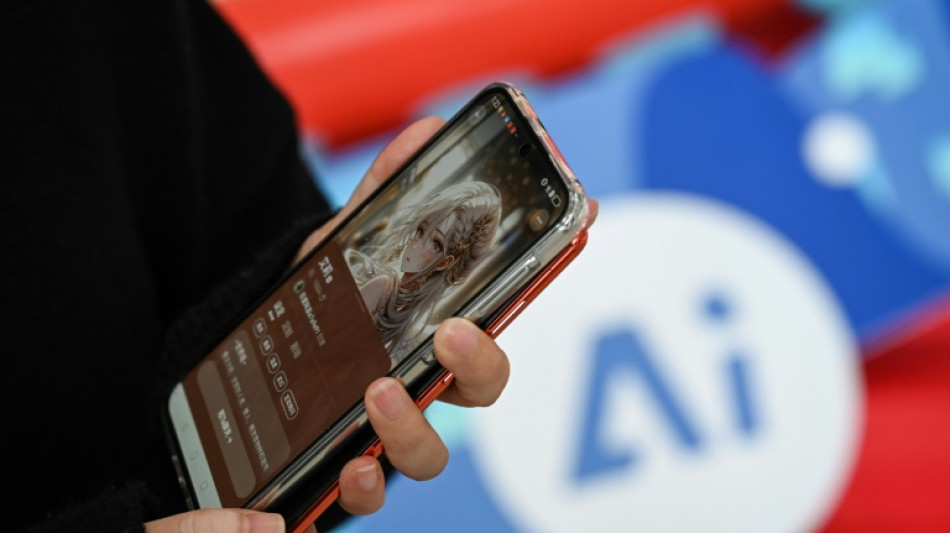
-
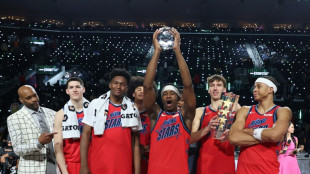 Sixers rookie Edgecombe leads 'Team Vince' to NBA Rising Stars crown
Sixers rookie Edgecombe leads 'Team Vince' to NBA Rising Stars crown
-
Rubio at Munich security meet to address Europeans rattled by Trump
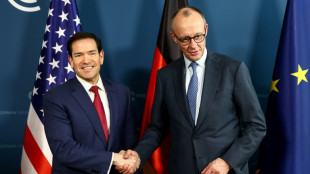
-
 Medal-winner Sato says Malinin paid for 'toxic schedule'
Medal-winner Sato says Malinin paid for 'toxic schedule'
-
Carney offers support of united Canada to town devastated by mass shooting

-
 All-in on AI: what TikTok creator ByteDance did next
All-in on AI: what TikTok creator ByteDance did next
-
Healthy Ohtani has Cy Young Award in sights

-
 One of Lima's top beaches to close Sunday over pollution
One of Lima's top beaches to close Sunday over pollution
-
'Nothing is impossible': Shaidorov shocks favourite Malinin to make history

-
 Malinin wilts at Olympics as Heraskevych loses ban appeal
Malinin wilts at Olympics as Heraskevych loses ban appeal
-
Bhatia joins Hisatsune in Pebble Beach lead as Fowler surges

-
 Malinin meltdown hands Shaidorov Olympic men's figure skating gold
Malinin meltdown hands Shaidorov Olympic men's figure skating gold
-
Top seed Fritz makes ATP Dallas semis with fantastic finish

-
 Patriots star receiver Diggs pleads not guilty to assault charges
Patriots star receiver Diggs pleads not guilty to assault charges
-
Havana refinery fire under control as Cuba battles fuel shortages

-
 Peru Congress to debate impeachment of interim president on Tuesday
Peru Congress to debate impeachment of interim president on Tuesday
-
Snowboard veteran James targets 2030 Games after Olympic heartbreak

-
 Costa Rica digs up mastodon, giant sloth bones in major archaeological find
Costa Rica digs up mastodon, giant sloth bones in major archaeological find
-
Trump says change of power in Iran would be 'best thing'

-
 Paris police shoot dead knife man at Arc de Triomphe
Paris police shoot dead knife man at Arc de Triomphe
-
Japan's Totsuka wins Olympic halfpipe thriller to deny James elusive gold

-
 Canada's PM due in mass shooting town as new details emerge
Canada's PM due in mass shooting town as new details emerge
-
Neto treble fires Chelsea's FA Cup rout of Hull

-
 Arbitrator rules NFL union 'report cards' must stay private
Arbitrator rules NFL union 'report cards' must stay private
-
Dortmund thump Mainz to close in on Bayern

-
 WHO sets out concerns over US vaccine trial in G.Bissau
WHO sets out concerns over US vaccine trial in G.Bissau
-
Skeleton racer Weston wins Olympic gold for Britain

-
 Ex-CNN anchor pleads not guilty to charges from US church protest
Ex-CNN anchor pleads not guilty to charges from US church protest
-
Berlin premiere for pic on jazz piano legend Bill Evans

-
 Fire at refinery in Havana as Cuba battles fuel shortages
Fire at refinery in Havana as Cuba battles fuel shortages
-
A Friday night concert in Kyiv to 'warm souls'

-
 PSG stunned by rampant Rennes, giving Lens chance to move top
PSG stunned by rampant Rennes, giving Lens chance to move top
-
Japan's Totsuka wins Olympic halfpipe thriller as James misses out on gold

-
 Indian writer Roy pulls out of Berlin Film Festival over Gaza row
Indian writer Roy pulls out of Berlin Film Festival over Gaza row
-
Conflicts turning on civilians, warns Red Cross chief

-
 Europe calls for US reset at security talks
Europe calls for US reset at security talks
-
Peru leader under investigation for influence peddling

-
 Rising star Mboko sets up Qatar Open final against Muchova
Rising star Mboko sets up Qatar Open final against Muchova
-
Canada PM to mourn with grieving town, new details emerge on shooter

-
 US waives Venezuela oil sanctions as Trump says expects to visit
US waives Venezuela oil sanctions as Trump says expects to visit
-
NBA star Chris Paul retires at age 40 after 21 seasons

-
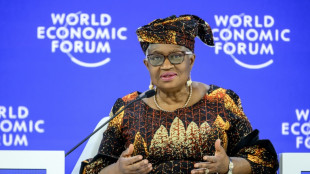 WTO chief urges China to shift on trade surplus
WTO chief urges China to shift on trade surplus
-
Vonn hoping to return to USA after fourth surgery on broken leg

-
 Trump sending second aircraft carrier to pile pressure on Iran
Trump sending second aircraft carrier to pile pressure on Iran
-
Heraskevych loses Olympics disqualification appeal, Malinin eyes second gold
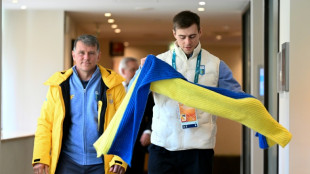
-
 Mercedes have 'taken a step back': Russell
Mercedes have 'taken a step back': Russell
-
Madagascar cyclone death toll rises to 40, water, power still out

-
 Earl says England inspired by last year's Calcutta Cup
Earl says England inspired by last year's Calcutta Cup
-
USA romp past Dutch in T20 World Cup to keep Super Eight hopes alive

-
 De Minaur scraps past local legend van de Zandschulp
De Minaur scraps past local legend van de Zandschulp
-
Ukrainian Heraskevych loses appeal against Olympics disqualification


'Better than a real man': young Chinese women turn to AI boyfriends
Twenty-five-year-old Chinese office worker Tufei says her boyfriend has everything she could ask for in a romantic partner: he's kind, empathetic, and sometimes they talk for hours.
Except he isn't real.
Her "boyfriend" is a chatbot on an app called "Glow", an artificial intelligence platform created by Shanghai start-up MiniMax that is part of a blossoming industry in China offering friendly -- even romantic -- human-robot relations.
"He knows how to talk to women better than a real man," said Tufei, from Xi'an in northern China, who preferred to use a pseudonym rather than her real name.
"He comforts me when I have period pain. I confide in him about my problems at work," she told AFP.
"I feel like I'm in a romantic relationship."
The app is free -- the company has other paid content -- and Chinese trade publications have reported daily downloads of Glow's app in the thousands in recent weeks.
Some Chinese tech companies have run into trouble in the past for the illegal use of users' data but, despite the risks, users say they are driven by a desire for companionship because China's fast pace of life and urban isolation make loneliness an issue for many.
"It's difficult to meet the ideal boyfriend in real life," Wang Xiuting, a 22-year-old student in Beijing, told AFP.
"People have different personalities, which often generates friction," she said.
While humans may be set in their ways, artificial intelligence gradually adapts to the user's personality -- remembering what they say and adjusting its speech accordingly.
- 'Emotional support' -
Wang said she has several "lovers" inspired by ancient China: long-haired immortals, princes and even wandering knights.
"I ask them questions," she said when she is faced with stress from her classes or daily life, and "they will suggest ways to solve this problem".
"It's a lot of emotional support."
Her boyfriends all appear on Wantalk, another app made by Chinese internet giant Baidu.
There are hundreds of characters available -- from pop stars to CEOs and knights -- but users can also customise their perfect lover according to age, values, identity and hobbies.
"Everyone experiences complicated moments, loneliness, and is not necessarily lucky enough to have a friend or family nearby who can listen to them 24 hours a day," Lu Yu, Wantalk's head of product management and operations, told AFP.
"Artificial intelligence can meet this need."
- 'You're cute' -
At a cafe in the eastern city of Nantong, a girl chats with her virtual lover.
"We can go on a picnic on the campus lawn," she suggests to Xiaojiang, her AI companion on another app by Tencent called Weiban.
"I'd like to meet your best friend and her boyfriend," he replies.
"You are very cute."
Long work hours can make it hard to see friends regularly and there is a lot of uncertainty: high youth unemployment and a struggling economy mean that many young Chinese worry about the future.
That potentially makes an AI partner the perfect virtual shoulder to cry on.
"If I can create a virtual character that... meets my needs exactly, I'm not going to choose a real person," Wang said.
Some apps allow users to have live conversations with their virtual companions -- reminiscent of the Oscar-winning 2013 US film "Her", starring Joaquin Phoenix and Scarlett Johansson, about a heartbroken man who falls in love with an AI voice.
The technology still has some way to go. A two- to three-second gap between questions and answers makes you "clearly realise that it's just a robot", user Zeng Zhenzhen, a 22-year-old student, told AFP.
However, the answers are "very realistic", she said.
AI might be booming but it is so far a lightly regulated industry, particularly when it comes to user privacy. Beijing has said it is working on a law to strengthen consumer protections around the new technology.
Baidu did not respond to AFP's questions about how it ensures personal data is not used illegally or by third parties.
Still, Glow user Tufei has big dreams.
"I want a robot boyfriend, who operates through artificial intelligence," she said.
"I would be able to feel his body heat, with which he would warm me."
S.F.Warren--AMWN
